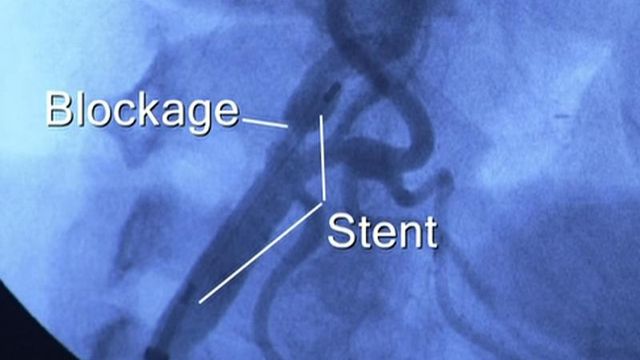Carotid artery blockages? Less-invasive procedure could be for you
A new study shows a less-invasive procedure to clear the blockages may soon be an option for all patients.
Posted — UpdatedA new study shows a less-invasive procedure to clear the blockages may soon be an option for all patients.
Jimmy Collier, 57, said he knew something was wrong.
“For a couple of years my feet had constantly hurt and toes had numbing sensations once in a while,” he said.
Ultrasound screening showed he had significant narrowing in his carotid arteries.
“The traditional way to clean up blockage in a carotid artery was to make an incision in the neck,” said WakeMed Cardiologist Dr. Ravish Sacher.
Sacher says patients at high risk of complications from surgery have had the option of a less-invasive procedure, using a catheter to place a stent in the blockage to restore normal blood flow.
Now, a new federally funded study shows that for all patients, regardless of age or history of stroke, the benefits of stenting or surgery are the same.
“This is important because it doesn't say that surgery is bad or good. It doesn't say that stenting is bad or good. What it does is it opens up another option for patients,” Sacher said.
He says patients should speak with a doctor who understands both options.
“There are clearly those patients based on anatomy and based on other medical factors who would do better with surgery. There are clearly those who would do better with stenting,” Sacher said.
Collier's area of blockage was too deep for surgery, so he had the stenting procedure in late January and his other carotid artery done the next month.
“I was totally awake the whole time. No pain,” he said.
The results surprised him. Not only was the pain in his feet gone, but his eye sight got better, he said.
The U.S. Food and Drug Administration has not yet approved carotid stenting for patients who are not at high risk of complications from surgery. Patients may speak to their doctor about enrolling in trials for the procedure.
• Credits
Copyright 2024 by Capitol Broadcasting Company. All rights reserved. This material may not be published, broadcast, rewritten or redistributed.





